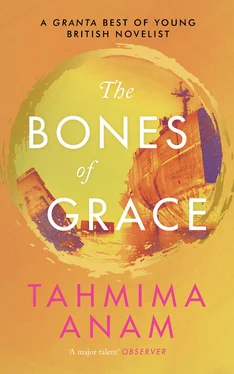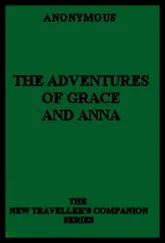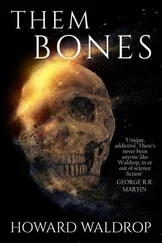Shona is twelve now. Mo, whose age I had never asked, would have probably been something of a teenager.
I don’t think of you all the time, Elijah. But I remember you on the cusp of every major event in my life. On the day I moved out of my parents’ apartment (a scandal, I should tell you, that I should be simultaneously divorced and living alone). On the anniversary of Mo’s death. I think about the fact that if I were dying, I would want to be with you. I would want to know what words you would say to comfort me. How you would love me through something like that. When I look back I realise so much of the time I spent with you was spent thinking about death, yours or mine or my parents’ or the seed that perished in my body, or even death on a catastrophic scale — that is, the extinction of the species, like Ambulocetus , someday all to be bones in the ground — but that’s what happens I suppose when you fall in love, because suddenly there is a thread connecting your life and all the lives that went before you and all the lives that will follow. Even when we were together I was filled with a sense of dread, not for the parting that would inevitably occur, but simply because I had a periscope into life, the vast and intimate sadness of it, for the first time, and that this is why I loved you, because even the worst of the world was there to be discovered together, shoulder to shoulder with you, my beloved stranger.
Diana is incomplete. The parts of her that arrived safely — her ankles, her pelvis, some vertebrae, the upper half of her ribcage — were assembled by Suzanne and I and these fragments lie before us in all their broken splendour. She is about ten feet long, and would have weighed between seven and eight hundred pounds. Her spine, as we had imagined, is semi-flexible; her pelvis tells us that she ventured only so far into the water. I look at her bones and they are my talismans, reflecting the future and the past, the lives of animals that came before and after her, and, more intimately, the people I have loved and lost: Mo, and Zamzam, and my sister Megna, and my mother, and you, Elijah, most of all. Everything that endures is in the atavism of her bones, fifty million years of history encased in calcium, iron, and sediment. Perhaps my mysterious friend will send me the rest, perhaps not. In his last package, however, he included the handwritten letter from Zamzam that had started it all:
I will not have a burial, comrade. I will die unmarked, and you will only hear of my death in the whispering of trees. You will never gaze on my lifeless form. But, as if you were preparing my body, washing and wrapping me in the white shroud, take these bones which are the echoes of God, and send them to my friend, who will care for them and ensure their proper place in the chronicle of humans and animals .
Remember, Elijah, how the first words we spoke to each other seemed so arbitrary at the time. Aristotle was an orphan, you said. Well, it was Aristotle, sailing in the Aegean, who first distinguished whales from fish. And later, it was the Arab scholar Jahiz who began to classify animals and hinted at a theory of evolution. I went to London to see Jahiz’s book for myself. The Kitab al-Hayawan is a treatise on animals and the medical properties of the various parts of their bodies, compiled from works of Aristotle and Ibn Bakhtishu , the caption says. Inside, there is an illustration of a four-legged animal floating in a pool of water. It was probably intended to be a lizard or a salamander, but the image has echoes of Pakicetus , the land-loving ancestor of Diana. I looked down at the manuscript and it told me that the connections between us are not spurious or the result of coincidence, but ancient and profound, and yes — even the scientist in me will allow — sacred.
*
I have been putting up flyers. Bart, Jimmy and I are going to display Ambulocetus natans at the Natural History Museum next week. There will be a reception for the media, and my small world of palaeontologists will be watching with great interest. Diana is incomplete, but she is magnificent, and there is still much we can learn from her.
I have considered that there is a chance that all of this — Diana’s bones being sent to Cambridge, which made me put her back together, which put me at the intersection that day, which made me write it all down — was a ruse, a set of events puppeted by fate to send up a smoke signal to you, Elijah. All so that you would find the flyer tacked to a bulletin board on campus, come to my unveiling, read this story, and collude with me to determine its ending.
My hopes go up and down like paper lanterns in the wind. When I first sat down to write, I thought that if you ever read these words, you would see that although I gave you up, whatever it was that passed between us was no illusion, and here, in black and white, was the incontrovertible truth of it. And then, when I came here and started to piece Diana together, when I saw you on the street and then not again, I lost hope; I no longer imagined you running up beside me as I walked through the Quad, telling me that all was forgiven.
Worse, the more I wrote, the more I realised I couldn’t change a thing. I couldn’t sand down the rough edges of my words to you, nor make myself turn to look at you with your fingers wrapped around that bottle of honey, because that is how it happened and there is nothing I can do to push my hand back into the black of our past. I have been tempted to bend the truth, to paint myself a little prettier, but I know you hate evasion more than anything, so I have been relentlessly, brutally truthful. I have placed my ugly, complicated heart within these pages, and although the shame hasn’t passed, I tell myself at least I have been able to face it. I have been able to look that woman in the eyes, and say, yes, I was her. I was her and I am her. But this truth telling, in the end, is not for me but for you. To bring you back to me. To give you something in return for the pain that I threw at you like a shower of stones.
Now that I have pieced together not just the fossil but myself, I must tell you that this forensic approach no longer satisfies me, Elijah. It is no longer enough for me to uncover the truth. I want to make my tracks on the world, leave my own mysterious scratchings on the walls of history. As I put the finishing touches on Diana, placing her bones in their correct order, and as I finished our story, I asked myself what would happen if I cut my tether to the truth. What would happen if I turned to that place of dreams, the one where I can make up the ending of a story? I couldn’t do it with ours — I had to tell it exactly as it happened — but I could do it with others. I remembered my grandmother once telling me that her son had hidden a trunk full of rifles in her back garden during the war, and an idea began to take shape in my mind.
I am buoyed by the prospect of changing her story as I write, giving her a pause of happiness in what has been a long and lonely life. I can start with a true story and I can make the rest up, blunt the edges of a tragedy, or perhaps not that at all, perhaps render it even clearer, but this time, this time I will be holding the brush, I will be the storyteller, and everything — history, and the will of other people, and the hard forward thrust of time itself — will be in my thrall, because you see, Elijah, I am no longer a person written and mutely accepted, I am the scribe, the person with her foot on the brass pedal of the piano, and though you may never love me again, you will always remain the making of me.
I will send this to you now. I am full of those days on the beach when the light was the colour of oranges and the scent between us had mingled so deeply that there was nothing between us but a thin double-layer of skin. It is springtime in Cambridge; I see snow melting on sidewalks and blossoms punctuating the cold. In a few days I will wait for you to come and visit my beloved fossil. You will be late, I know. You will make me lose hope until the very last moment, and then, out of the corner of my eye, I will notice you tying your shoelace or taking something out of your pocket. The moment I see you I will feel myself disintegrating, but you will hold me steadily in your gaze, as you have always done. I have said a thousand sorrys within these pages, and I will say them again, later, but for now, there will be no more words, only eyes. Mine will say: you came back. And yours will say yes, I did, and we will walk hand in hand out of that room — past Diana and the glass flowers and Zamzam and Megna and the war my parents fought, all of our ghosts behind us, and before us the terrible, dark world — belonging only to each other.
Читать дальше












